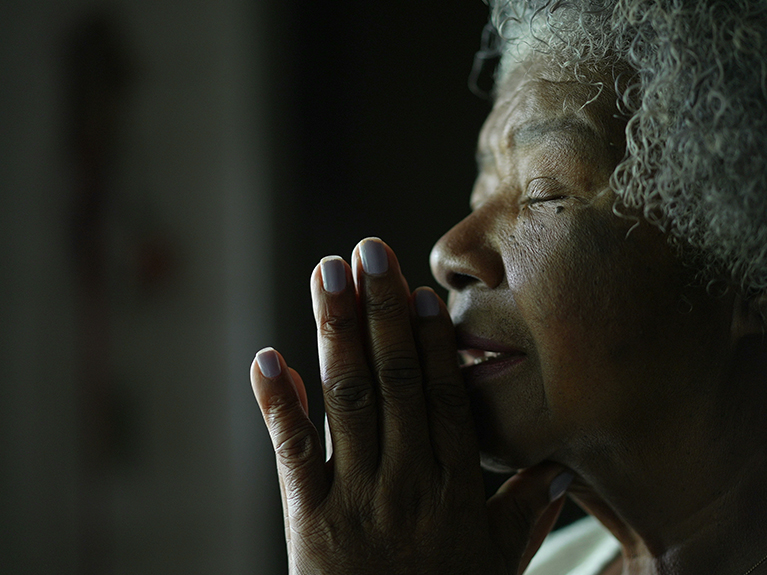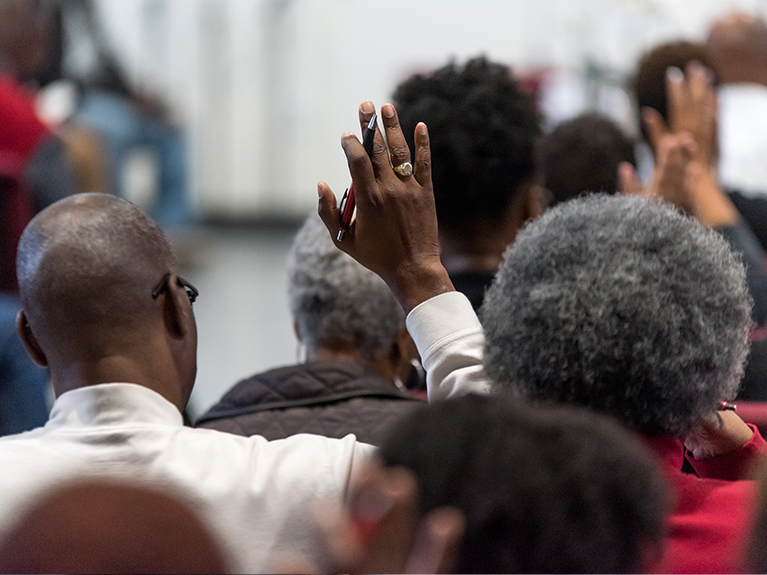Strategies for Gaining Acceptance of Advance Care Planning in African American Faith Communities: Perspectives by Marisette Hasan
 During the past six months I have been honored to participate as an African American nurse educator for two amazing African American faith based Advance Care Planning Initiatives in North Carolina. (The Community Care Project funded by the Duke Endowment and the North Carolina Licensed to Give Trust Fund Commission and EQUAL Space: A Spiritual and Faith Based Advance Care Planning and Palliative Care Education Curriculum, an outreach Partnership of the AME Zion Church H.E.AL. and Duke Health.)
During the past six months I have been honored to participate as an African American nurse educator for two amazing African American faith based Advance Care Planning Initiatives in North Carolina. (The Community Care Project funded by the Duke Endowment and the North Carolina Licensed to Give Trust Fund Commission and EQUAL Space: A Spiritual and Faith Based Advance Care Planning and Palliative Care Education Curriculum, an outreach Partnership of the AME Zion Church H.E.AL. and Duke Health.)
It is not often, that I can share my clinical experiences in conjunction with faith community outreach to African American communities. I know too well from my own personal family and cultural experiences of the barriers to advance care planning. Some of these barriers have been documented in research articles such as, Factors Impacting Advance Care Planning among African Americans: Results of a Systematic Integrated Review, include, but are not limited to the following:
- Lack of trust of the health care system/care providers (rooted in past experiences and present existence of implicit biases and structural racism)
- Fear that talking about dying hastens death
- Lack of knowledge
- Spiritual and faith conflicts re: the perception of removing hope with ACP conversations
- Cultural considerations to maintain hope
However, despite these known barriers, through our “inclusive” and “engaged” approaches, African American faith community leaders and their congregations are opening up their churches for workshops to dive deep into these issues, including debunking the myths regarding hospice and palliative care. Here are some of the lessons learned that have led to our successful engagement of rural and underserved communities in North Carolina.
- Engage influential pastoral leaders and ministry health leaders in the process
- Utilize the train-the-trainer type model to ensure sustainability
- Provide culturally relevant training related to topics desired and support learning needs for onsite or virtual offerings
- Imbed relevant spiritual context during the training and in training materials
- Recruit and utilize trainers who represent the community
- Allow ample time for storytelling and personal reflections
- Provide incentives as appropriate (such as church stipends, lunch, etc.)
Utilizing these success strategies, the barriers related to fear of having these conversations and the lack of knowledge regarding the benefits to having these conversations are removed. At the conclusion of the workshops, participants are smiling and ready to begin conversations on these important topics. Many are ready to execute their advance directives on site.
During one of our recent workshops last month in Winston Salem, NC, a 99-year-old woman executed her Health Care Power of Attorney at one of our workshops. She did it alongside her son and granddaughter who executed their advance directives at the same time! These sessions are rich with stories (testimonies) of those who struggled to make these decisions as a health care proxy during a medical crisis of a loved one and did not have the benefit of having earlier conversations with their loved ones to know exactly how to honor their wishes at the end of life. I am humbled and honored to educate them, but also to hear their stories and see them move forward in their desire to change their prior course of handling these situations.
These successful practices and more will be explored in greater detail during our upcoming CTAC-CAPC Leadership Summit. You don’t want to miss this amazing opportunity to connect, network, and learn from our community experts during these sessions.
Join Pastor Corey Kenard’s plenary, Human Experience Required, Without It Do Not Apply, or one of our breakout sessions, Addressing Disparities for Black Patients with Serious Illness through Innovative Community Care Delivery Models, featuring Dr. Gloria Anderson (Heart Tones), Dr. Clyde Oden (Alameda Care Alliance), Elder Angel Overton (Senior Advisor, CTAC) and Chris Thompson (Re-Imagine). These and many other sessions will dive into what works as we reach out to create access and care for our underserved and vulnerable communities.


